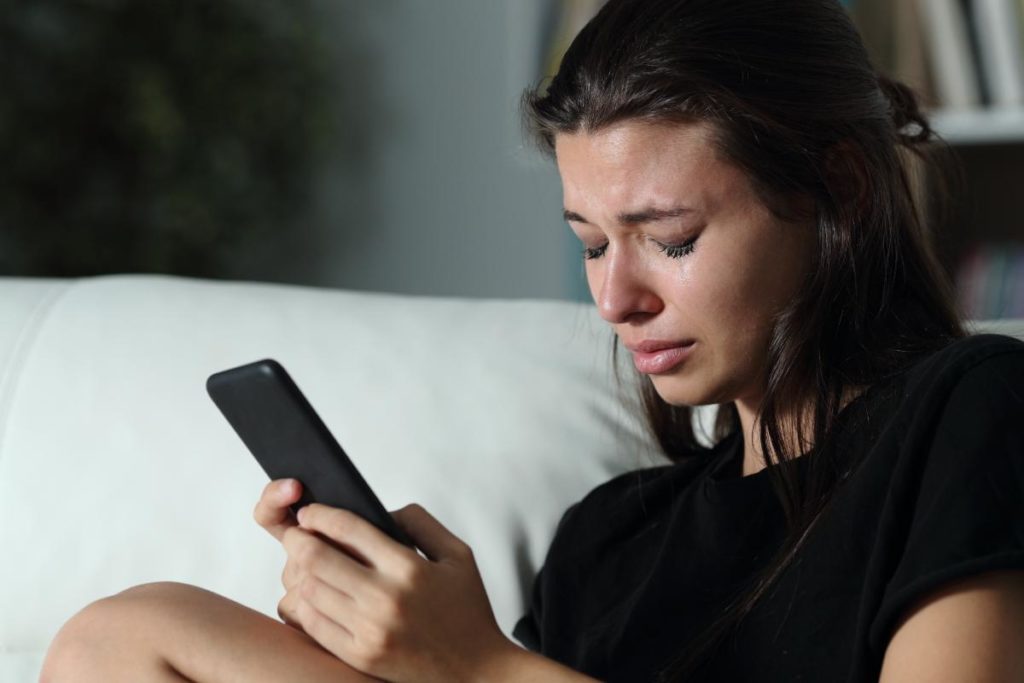Social media has become fully ingrained into the fabric of everyday life for teens and adults alike. Whether it’s updating Facebook, tweeting, scrolling on Instagram, or making and watching viral TikTok videos, many teens are spending hours a day scrolling through a variety of social media channels. On the surface, it all may seem like harmless entertainment and a diversion from the struggles of real life, but there may be a link between social media and teen mental health. If you are asking questions like “how does social media affect teen mental health” because your teen is struggling, reach out to Imagine Fort Collins online or call us at 888.291.2309 today to learn about our different treatment programs.
The Impact of Social Media
There is nothing new about young people trying drugs and alcohol or struggling with their emotions and mental health, but social media could be accelerating harmful behaviors, anxiety, and a negative self-image. Social media platforms like Instagram, Snapchat, and TikTok have the ability to foster an environment where children, teens, and adults alike are repeatedly exposed to violence, sexuality, and a general unrealistic version of everyday life. The real impact of social media on the teens on the other end of the screen could be significant
How Does Social Media Affect Teen Mental Health?
There’s significant evidence of a concerning connection between social media and teen mental health. Studies show that the most active teens on social media are reporting cases of depression at a significantly higher rate than their peers who are not using Instagram, Snapchat, and TikTok as frequently. While social media is likely not causing their depression directly, online socializing and the fear of missing out could be marginalizing already vulnerable teenagers and fostering feelings of loneliness and despair. Sadly, some teens may turn to drugs, alcohol, self-harm, or isolation as a way of coping with these feelings.
Social Media and Teen Mental Health
The average age when a child will start their first social media account is 12 ½. This means that most young people will experience and share their entire teen life on social media. Research is finding that the more time a teen will spend on social media, the more likely they will experience mental health symptoms like:
- Anxiety
- Isolation
- Hopelessness
- Depression
High levels of social media use over the span of four years have been found to be associated with increased depression among middle school kids and high school teens.
Lack of Life Skills
Teens who spend more time online and on social media are reducing face-to-face contact with others. In a world that is already becoming increasingly technology-driven and isolated, this could have a negative impact on the development of social skills.
Comparison
Teens are naturally iffy about their self-image. They are growing into the person they will become, and this is a volatile and vulnerable time of life. The impact of social media and teen mental health is seen here because social media is often a place that can foster harmful negative feelings as teens compare themselves to others based on the number of likes, friends, or followers of other people. Feeling inadequate may put teens at risk of increasing depression and isolation, factors that can contribute to suicidal ideation.
Bullying
The more a teen is online, sadly, the higher the odds they will experience bullying or harassment. LGBTQA+ teens, especially, are at a higher risk of being targeted and bullied on social media. The impact of bullying can be severe.
Learn More About Social Media and Mental Health at Imagine Fort Collins
The impact on mental health and social media teens can be dramatic, but there is help available to you and your teen. Contact Imagine Fort Collins today using our secure online form or call us at 888.291.2309 to learn more about how our teen treatment programs may be able to help.




